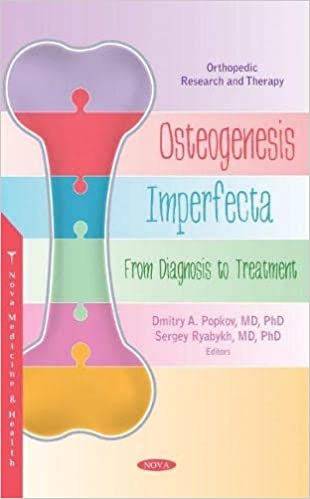
English | 2022 | ISBN: 1685074995, 978-1685074999 | 310 pages | True PDF | 7.41 MB
Osteogenesis Imperfecta should be recognized as one of the most studied skeletal systemic dysplasias. Considering recent improvements of technology, the diagnostic and therapeutic strategies for this pathology might evolve in the future. This volume presents a collection of chapters covering a wide range of problems related to this condition. Three chapters of the book are dedicated to the modern and revised data on the molecular genetic aspects of the classification and pathogenesis of osteogenesis imperfecta. Detailed descriptions of somatic issues are presented for all body systems. Principles and results of bisphosphonate therapy and other methods of medical management are described by leading Russian specialists in this field. The most significant experience in Russia of medical treatment and physical therapy will arouse the interest of readers. The surgical part of the book is presented not only with a description of principles, methods and results of surgical interventions on the limbs, but also on the axial skeleton. Furthermore, two chapters are dedicated to the anesthetic aspects of orthopedic surgery in children with osteogenesis imperfecta. The substantiation is given to the methods of combined anesthesia and pain management during the surgery, as well as in the immediate postoperative period, taking into account comorbidities. Telescopic rodding of long bones is a recognized gold standard in children with the disease, but there are multiple disadvantages of this approach. In the book we report new methods, combined techniques and technical tricks allowing to overcome inconveniencies and flaws of common steel telescopic intramedullary rods. At the end of the book, we discuss outcomes of complex management and the issue of patients' quality of life after treatment performed by a multidisciplinary team. The high level of quality of life of patients is the prime and principle goal of our team. The data presented in this book are based, on one hand, on the personal, practical, and scientific experience of each author, and on the other hand, the entire team of authors works in collaboration with each other, coordinating their decisions and interventions with colleagues, thus ensuring continuity in treatment of children and adults suffering from Osteogenesis Imperfecta.
Links are Interchangeable - No Password - Single Extraction



